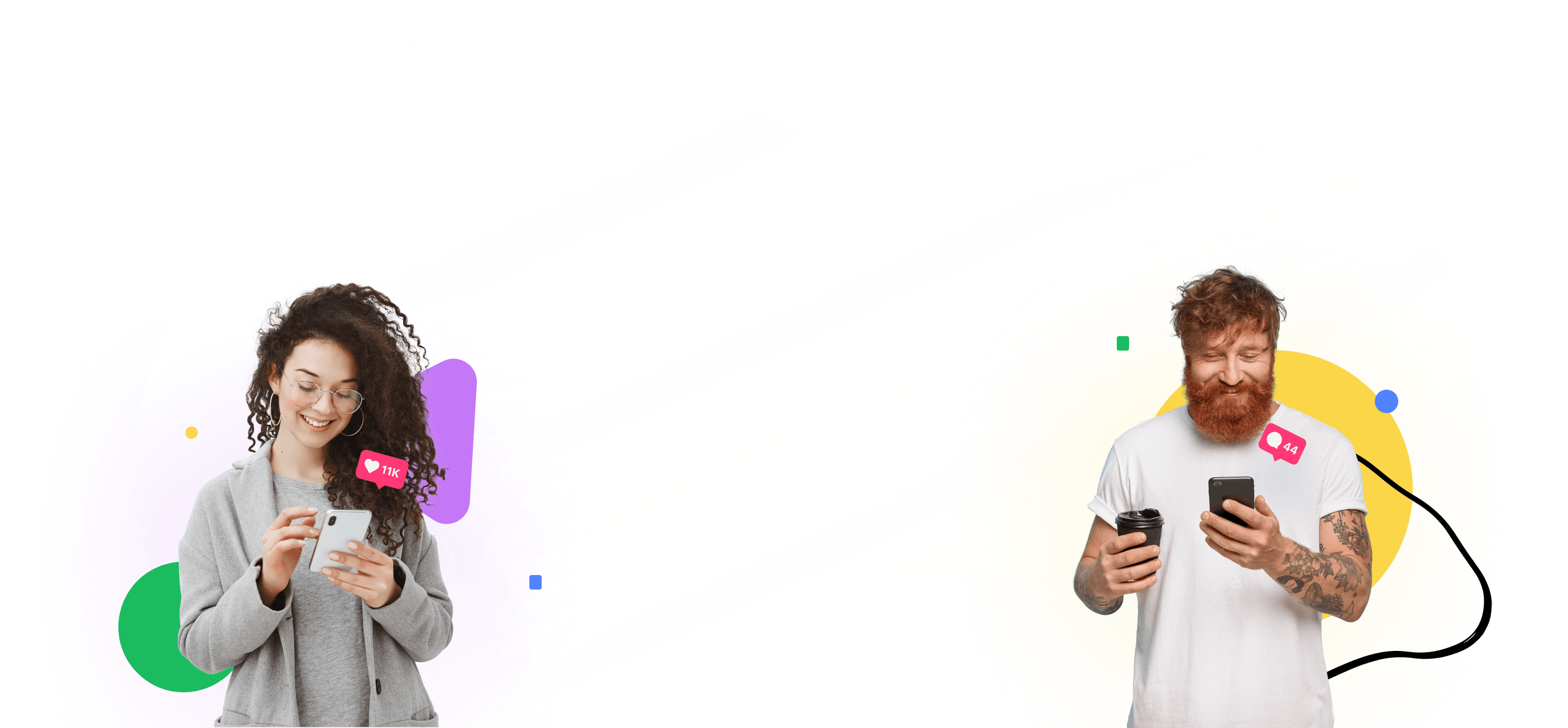Social media has become one of the most popular ways for companies to market themselves in the past decade. It has provided so many organizations with the opportunity to reach their target audience in ways traditional mediums such as TV and newspaper ads struggled to accomplish. Social media platforms have provided startups and small businesses with an opportunity to expand their business.
There are plenty of experts out there who believe that social media campaigns are a much-needed tool to survive in today’s business world. However, that doesn’t mean you need to spend countless hours managing your social media accounts. There are ways to automate the work and have it manage most of the legwork for you. Automating your social media campaign enables you to work on other aspects of your business, all while your automating tool continues to make posts in your place.
Here are some tips from experts on automating your social media campaigns.
Jessica Elliott
Jessica Elliott is a business technology writer and communications consultant, specializing in uncovering insights from data collection, observation, and analysis to help leaders make strategic decisions. From restaurant management to working with startups, Jessica relies on her 24 years in public-facing roles to connect the dots so that business professionals can develop their billion-dollar idea into total market visibility.
Jessica's tips communicate the importance of putting your audience first.
“Although saving time and money is an advantage of using social media automation tools, none of that will matter if customer experiences suffer.
Ensure that your target market enjoys optimal digital experiences by:
- Create a custom posting schedule: Base it on when your fans are the most active, which differs by social media platform and audience segments.
- Vary your posts by channel: Customers have different expectations for Twitter than they do for Instagram, so don't use the same content for every channel. Instead, adjust post copy and hashtags while using correctly sized images.
- Monitor real-world situations: Keep a humorous announcement from turning into an ill-timed flop by staying on top of local, national, and global events while tuning into audience sentiment around various related topics.
- Moderate conversations: Although automating social media is great; it doesn't eliminate the need to be present online. Watch your social feed to prevent negative bots, trolls, or bullies from infiltrating a thread with hate messages or sales ads.”

Jayson DeMers
Jayson DeMers is the founder & CEO of EmailAnalytics, an email analytics tool that enables you to visualize your email activity (or your team's) in Gmail and G Suite. Jayson also co-hosts the popular podcast The Entrepreneur Cast. He is a long-time contributor to Forbes, Inc Magazine, Entrepreneur Magazine, and dozens of other major media publications.
One of the many things you need to be aware of when it comes to scheduling your posts is to know the best time to do so. Every social media platform has an audience that operates differently from one another. If you are setting your post to go off at random hours, there is a good chance that you’ll miss out on reaching the people you want to consume your content.
Here is what Jayson has to say about scheduling your post at the correct time.
“Different networks cater to different audience demographics. For instance, LinkedIn attracts professionals, while Twitch attracts gamers. Based on who your audience is, their lifestyle is likely to differ. That, in turn, will also impact the time of day they are most active.
First, find the best time to post for each of the networks that you’re active on. It’s also important to assess the frequency of posting content on each channel. Once you’re done with that research, schedule your posts using an automation tool. Scheduling posts in bulk can help you stay consistent with your social media calendar. In fact, 83% of marketing professionals believe that scheduling is the best use of automation for marketing purposes.
However, you can’t rely on automation tools for everything. Your social media manager can lay out a plan to ensure that you stay consistent with your posting schedule. If you do it right, consistent posting can help you get more engagement and more followers.”
Madhura Gaikwad
Madhura is an experienced digital marketing professional. She is passionate about all things marketing and has played a significant role to plan and execute various marketing campaigns. She is currently working as a digital marketing lead at an IT firm. Her hobbies include travel, reading, and dance.
Madura mentions the importance of keeping track of the performance rate of your social media campaign. One of the things you’ll need to do is make adjustments whenever you see certain parts of your social media campaign faltering in certain areas.
“Although automation reduces human effort, eliminating human involvement is not a good practice for social media campaigns. Constantly monitor the process of your automation tool to ensure seamless engagement with your prospects, and analysis of content. This helps in optimizing your current process with the best outcomes from past campaigns.”
As specified previously, scheduling your posts is crucial for the success of your automated social media campaigns. However, Madura offers advice on being careful with scheduling too far ahead.
“Social scheduling has made life easier for marketers with future planning of social content. But planning too far in advance is not a good practice given the short life of trends and buzzwords. Social media is all about being available in real time, and making the best out of popular culture references, current social issues, and technology trends. Hence, make sure you do not schedule your content too much in the future to avoid sounding irrelevant.”
Jonathan Crossfield
Jonathan Crossfield describes himself as a storyteller because writer, editor, content strategist, digital marketer, journalist, copywriter, consultant, trainer, speaker and blogger wouldn’t fit neatly on a business card. Jonathan has won awards for his magazine articles and blog posts on digital marketing, but that was so long ago now it seems boastful to keep mentioning it in bios. He lives in the Blue Mountains near Sydney, Australia, with a very patient wife and one very impatient cat. Follow Jonathan on Twitter @Kimota.
Johnathan mentions that it’s essential that you use social media automation for the right reasons and not to overdo it. Your target audience will notice the automated posts and come to hate them if you overdo them. It’s crucial to know when the right time to post automated posts and ones that are authentic.
“That now-famous Oreo tweet during the 2013 Super Bowl (15,861 retweets and 6,506 favorites) has been called one of the greatest marketing tweets of all time. But it would never have happened if the Oreo social media content team opted to schedule and automate the tweets in advance of the big game.
The “dunk-in-the-dark” tweet was successful because it showed the Oreo team was right there in the moment with the rest of the crowd, joking and reacting to the events on the field.
You can’t fake that kind of real-time authenticity.”
Another example Jonathan uses is the Oscars hashtag.
“The Oscars hashtag is also a regular target for brands looking for maximum social media content exposure. 2014’s “night of nights” for the film world saw a single star-studded selfie from Ellen DeGeneres nearly crash Twitter with 2.5 million retweets. (It was taken and shared on a Samsung phone, a major sponsor of the Oscars. Coincidence? You decide.) NASA also capitalized on the 10 Oscar nominations for Gravity — a film that threw space debris, satellites, George Clooney and eventually the entire planet at Sandra Bullock to try and stop her from ever making another romcom.
The U.S. space agency reacted enthusiastically as the movie won seven of the golden Ken dolls — not something you can predict and schedule in advance — while sharing incredible images and genuine space-age facts with the hashtag #RealGravity. The result? Thousands of retweets and plenty of enthusiastic engagement from an audience rediscovering its awe of space exploration.
Contrast those examples to the shellacking some brands received for their automated and unimaginative tweets during last year’s Oscars. Or to the hatred directed at brands for scheduling a flood of generic promotional tweets that filled people’s streams during the London Olympics opening ceremony.
Scheduling social media updates to an event hashtag is like leaflet-bombing a large party. Or worse, a major unfolding tragedy.”

Kevin Payne
_Kevin Payne is a lifelong learner that enjoys experimenting with scale software and eCommerce companies. Growing up, Kevin went through a rough childhood that made him strive for a better life. Fortunately, Kevin endured and has built a successful career over the years. He manages LeadHackers, a premium freelance marketplace that helps software companies boost their monthly recurring revenue by developing marketing funnels and executing content marketing campaigns. _
Kevin explains how the 5-3-2 principle can boost your brand awareness.
“Simply put, the 5-3-2 principle teaches that out of every 10 posts you upload on your social media accounts:
- 5 must be relevant material from influencers and reputable sites,
- 3 are original content you’ve published that are not promoting anything, and
- 2 are funny or personal posts.
Now, you may be wondering how does share more content from other sources help promote your brand?
Well, for starters, providing curated content means that you’re able to populate your accounts with valuable content while you’re still building up your site’s blog with your own original content.
Second, it follows the old adage, “tell me who your friends are, and I’ll tell you who you are.” By curating valuable content from key influencers in your niche, you’re indirectly showing your target audience the quality and value your brand and product can provide them.
Last, but not the least, is that it opens the door for you to connect and engage with influencers in your niche. Mentioning them in the message you include in your curated post will alert them to you. Eventually, they’ll take notice, and may even drop by your account.”
Kevin also mentions promoting a product with a 4-1-1 principle.
“This is the principle you’ll need to follow to make sure that you don’t turn off your followers by looking too salesy with your posts.
Initially, this principle was designed for Twitter. However, I found that this works as well on other social media sites.”
To use this principle, make sure that for every 6 social media posts:
- 4 should be fresh and original content you’ve published,
- 1 post will be a curated post, and
- 1 will be a self-promoting post.
Elise Dopson
Elise Dopson is a freelance writer for leading B2B SaaS companies. She's also the co-founder of Peak Freelance, a freelance writing community.
Elise states how hashtags play a massive role in setting up a social media campaign and why you should take the time to analyze them.
“It’s no secret that hashtags are one of the best ways for marketers to reach new audiences. Social media platforms like Twitter and Instagram have hashtag search features, and potential followers are likely using (or following) those hashtags to find new content.
The good news is, you don’t have to hunt around for or decide on which hashtags you should be using. Tools like Later and Planoly can automate the process for you, delivering a simple report of the hashtags your audience is using, and, therefore, should be added to your content.”
Elise also brings up the fact that your target audience could be talking about your brand on social media without tagging your company.
“There’s a good chance that people are talking about your brand on social media without tagging you in their conversations.
Listening in on those conversations is valuable for any business in order to learn what people like, what they don’t like, and whether they’re recommending your products or services to their network.
Manually checking for those brand mentions is time-consuming; however, social listening tools like Agorapulse and Mention do it for you. You’ll get a notification each time someone uses your brand name but doesn’t tag you, so you can hop into that conversation within a matter of minutes (if needed).”

Conclusion
Social media is a much-needed marketing tool for any company out there. That’s especially true for startups and small businesses that are limited by the resources they have. Using social media to increase your brand awareness will ensure you attract your target audience to your product or services. Automation can ease the difficulty that comes with social media marketing if done correctly. Use the tips provided by these individuals to successfully campaign your business on social media.



